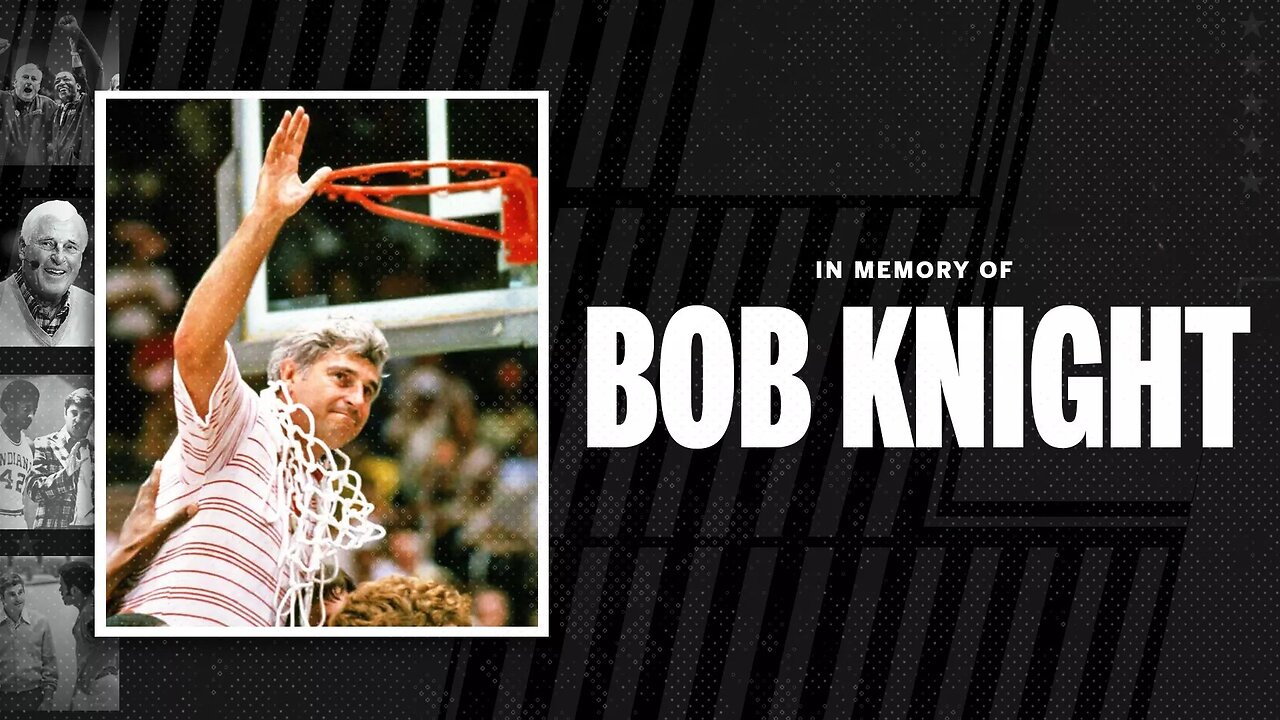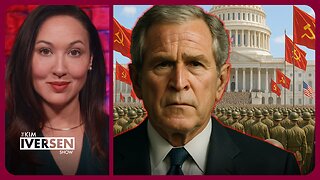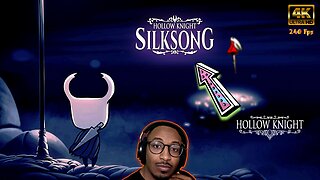Premium Only Content

The Legend - Bobby Knight - RIP
BLOOMINGTON, Ind. - Bob Knight, one of the most successful and influential figures in the history college basketball, passed away on Nov. 1, 2023 surrounded by family and friends. He was 83 years old.
Knight's coaching accomplishments are legendary. He went 902-371 during a 42-year head coaching career that included stops at Army (1966-71), Indiana (1972-2000), and Texas Tech (2002-08). Those 902 wins ranked No. 1 all-time when he retired in 2008, and currently ranks sixth. He was a four-time National Coach of the Year, a five-time Big Ten Coach of the Year, and was inducted into the Naismith Basketball Hall of Fame (1991), the College Basketball Hall of Fame (2006), and the IU Athletics Hall of Fame (2009).
While he enjoyed tremendous success at each of his three head coaching stops, he became a larger-than-life figure in the sport thanks to his accomplishments in Bloomington. Hired by IU at the age of 30 in 1971, he led the program to three NCAA titles (1976, 1981, 1987), five Final Fours (1973, 1976, 1981, 1987, 1992), and 11 Big Ten Regular Season Championships (1973-76, 1980-81, 1983, 1987, 1989, 1991, 1993) in his 29 years as head coach. Knight's 1976 team, which went 32-0 on its way to the NCAA title, remains the most recent to go undefeated on its way to an NCAA title. His 1975 and 1976 teams, meanwhile, each went undefeated (18-0) in Big Ten play, and no Big Ten team has gone undefeated in a single season in league play since. Indiana's 37 consecutive Big Ten wins during that period also established a new conference standard that has never been seriously threatened.
Knight's dominance at IU stretched through all three decades that he coached in Bloomington. The 1970s included four Big Ten titles, two Final Fours, and one of the greatest teams in college basketball history with the undefeated 1976 national champions. As great as the 1970s were, the 1980s were even better. College basketball's most successful team during the decade, Knight's teams captured two NCAA titles and five Big Ten championships. In the 1990s, the Hoosiers won two more league crowns, advanced to another Final Four, earned 10 NCAA tourney bids, and four straight Sweet 16 trips. The 1990s also featured one of Knight's greatest teams to not win an NCAA title, as the 1993 team went 17-1 in the Big Ten, was the No. 1 overall seed in the NCAA Tournament, and featured four players that would eventually be first-round NBA Draft picks.
In addition to his accomplishments representing Indiana University, Knight also enjoyed similar success on the international level. He assembled and coached arguably the greatest amateur men's basketball team in history, as he led the 1984 U.S. Olympic team to a gold medal in Los Angeles, and guided the U.S. team to the 1979 Pan American Games gold as well.
While his teams excelled on the court, Knight's student-athletes also embodied what it meant to be a student-athlete. During his IU coaching career, 98 percent of his four-year players earned their degrees.
Besides being one of the sport's most successful coaches, Knight was also one of the most innovative. He revolutionized and popularized the 'motion offense,' an offensive style originally credited to one of Knight's mentors, Henry Iba. Unlike traditional 'set' offensive plays, the motion offense relied on player movement, proper spacing, passing, cutting, and screening to create scoring opportunities. It's a style of play that became synonymous with Knight and his IU teams, and it remains very much a staple of many of the game's most successful coaches to this day. Defensively, Knight was equally committed to a single style, as he had a deeply-rooted belief in the merits of the man-to-man defense.
The successes of both styles were enormous throughout his IU tenure, as his Hoosier teams were traditionally one of the Big Ten's most efficient offensively and one of the most difficult to score against defensively. As a result, Indiana won 73.5 percent of its games during Knight's tenure, the best among all Big Ten programs during that period. IU also earned 24 invitations to the NCAA Tournament during his 29 years, going 42-21 (.667) in those games. Overall, 28 of Knight's 29 IU teams earned postseason invitations.
While Knight's system and his unwavering belief in those coaching philosophies were a big part of his success at IU, an even more important component of his success was the abundance of exceptional student-athletes that he attracted to and developed in Bloomington.
In all, Knight coached nine Big Ten MVPs and 27 All-Americans at IU. His first Big Ten MVP was Steve Downing, who earned the honor in 1973 after leading Knight's second Hoosier team to the program's first Big Ten title in six years and its first Final Four trip in 20 seasons. The next to win the award was Scott May, the Big Ten's MVP in both 1975 and 1976 who also became Knight's first National Player of the Year in 1976. Calbert Cheaney became Knight's second National Player of the Year in 1993 after guiding IU to a Big Ten title, an Elite Eight berth, and becoming the Big Ten's all-time leading scorer with 2,613 points, a mark that stands to this day.
The list of Knight's legendary IU players doesn't end there. Far from it. Quinn Buckner was a two-time All-American, a three-time Big Ten champion, an Olympic gold medalist, and a future NBA champion whom Knight often referenced as the greatest leader in program history. Isiah Thomas was a 1981 All-American who guided IU to the NCAA title that same season before going on to a Hall of Fame and championship professional career with the NBA's Detroit Pistons. Steve Alford was a Big Ten MVP and two-time All-American who led the 1987 team to an NCAA title. And current IU coach Mike Woodson was a two-time All-American and 1980 Big Ten MVP who was Knight's first IU player to score 2,000 career points.
Knight was born on Oct. 25, 1940, in Orrville, Ohio. A multi-sport standout at Orrville H.S., Knight played basketball at Ohio State for Hall of Fame Coach Fred Taylor from 1958-62. A key reserve on those Buckeye teams, Knight played alongside future Hall of Famers John Havlicek and Jerry Lucas and helped OSU to the 1960 NCAA title and NCAA runner-up finishes in both 1961 and 1962.
After graduating from Ohio State in 1962, Knight spent one year coaching high school basketball at Cuyahoga Falls (Ohio) H.S. before enlisting in the Army in 1963. While in the Army, Knight accepted an assistant coaching position with the men's basketball team, and two years later was promoted to head coach at the age of 24. He went 102-50 in six years with the program and earned four NIT invitations before IU Athletic Director Bill Orwig announced his hiring as IU's new head coach on March 27, 1971.
-
 LIVE
LIVE
Edge of Wonder
3 hours agoCattle Mutilations, Chupacabra Sightings & NASA’s Voyager Goes Dark?
149 watching -
 LIVE
LIVE
SavageJayGatsby
19 hours agoFriend Friday | MicroWorks | $300 Weekly Goal for Spicy Bite Saturday | 250 Follower Goal!
47 watching -
 LIVE
LIVE
Quite Frankly
2 days agoHookah Special: Found Footage, Workplace Folly, More Cringe Music Vids (8/23/25 Re-Run)
318 watching -
 12:38
12:38
AlaskanBallistics
18 hours agoNutrek Optics Coppertag 5-25x56mm Review
2.35K -
 LIVE
LIVE
The Mike Schwartz Show
4 hours agoTHE MIKE SCHWARTZ SHOW Evening Edition with Guests Dr. PETER MCCULLOUGH and JOHN LEAKE
4,223 watching -
 1:01:41
1:01:41
BonginoReport
9 hours agoAI & The Woke Indoctrination Ruining Childhood - Nightly Scroll w/ Hayley Caronia (Ep.123)
76.1K11 -
 1:17:29
1:17:29
Kim Iversen
5 hours agoTrotskyite Neocons: How MARXISTS Built the Modern GOP
70.7K101 -
 DVR
DVR
StoneMountain64
4 hours ago#1 Battlefield Mastery Session with the BOYS
19.9K1 -
 1:23:45
1:23:45
Roseanne Barr
5 hours agoDeclassifying Presidential Sex Slavery W/ Cathy O’Brien | The Roseanne Barr Podcast #113
102K42 -
 LIVE
LIVE
FusedAegisTV
19 hours agoHollow Knight Silksong Waiting Room ~~ pt. I
64 watching